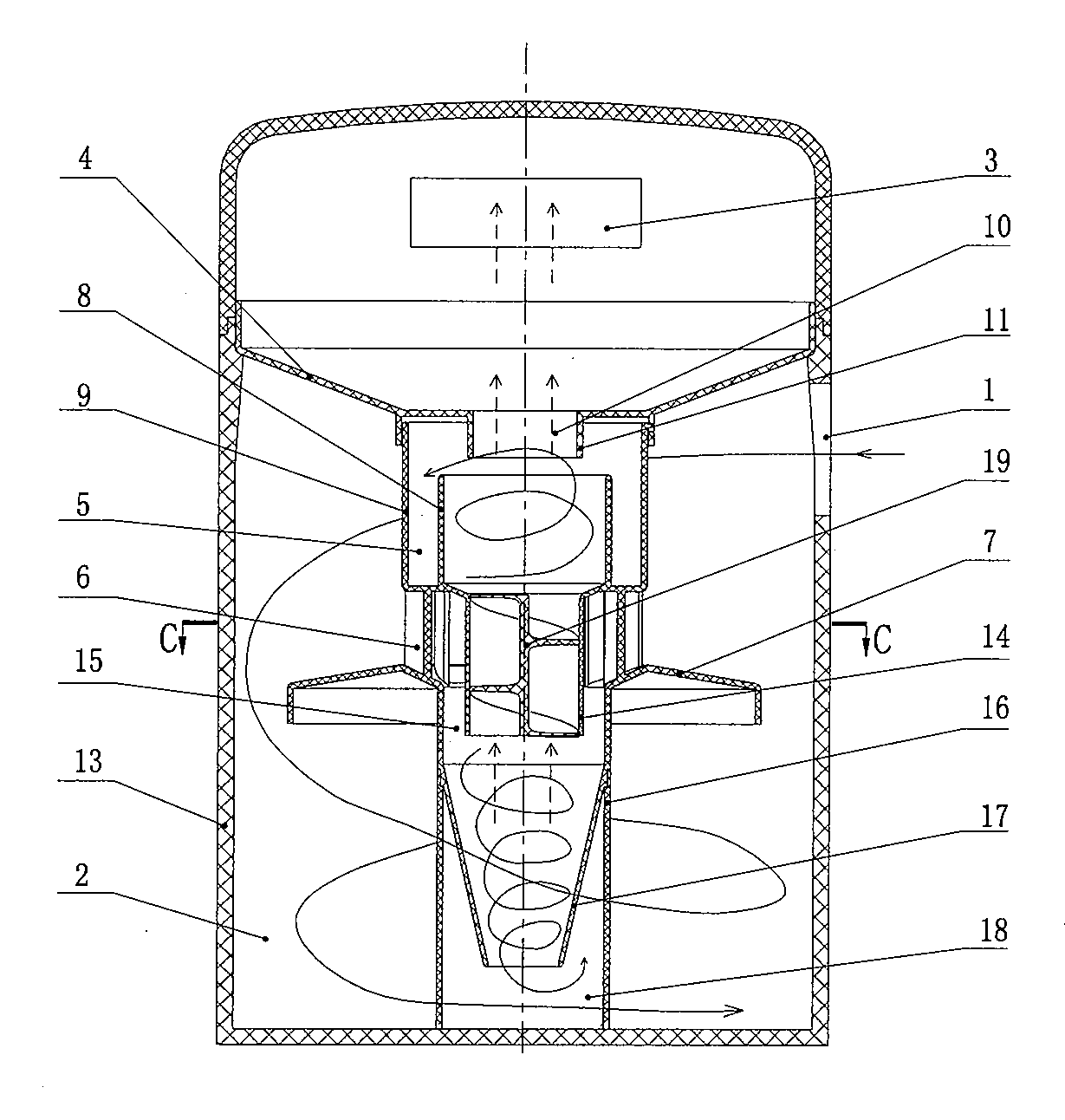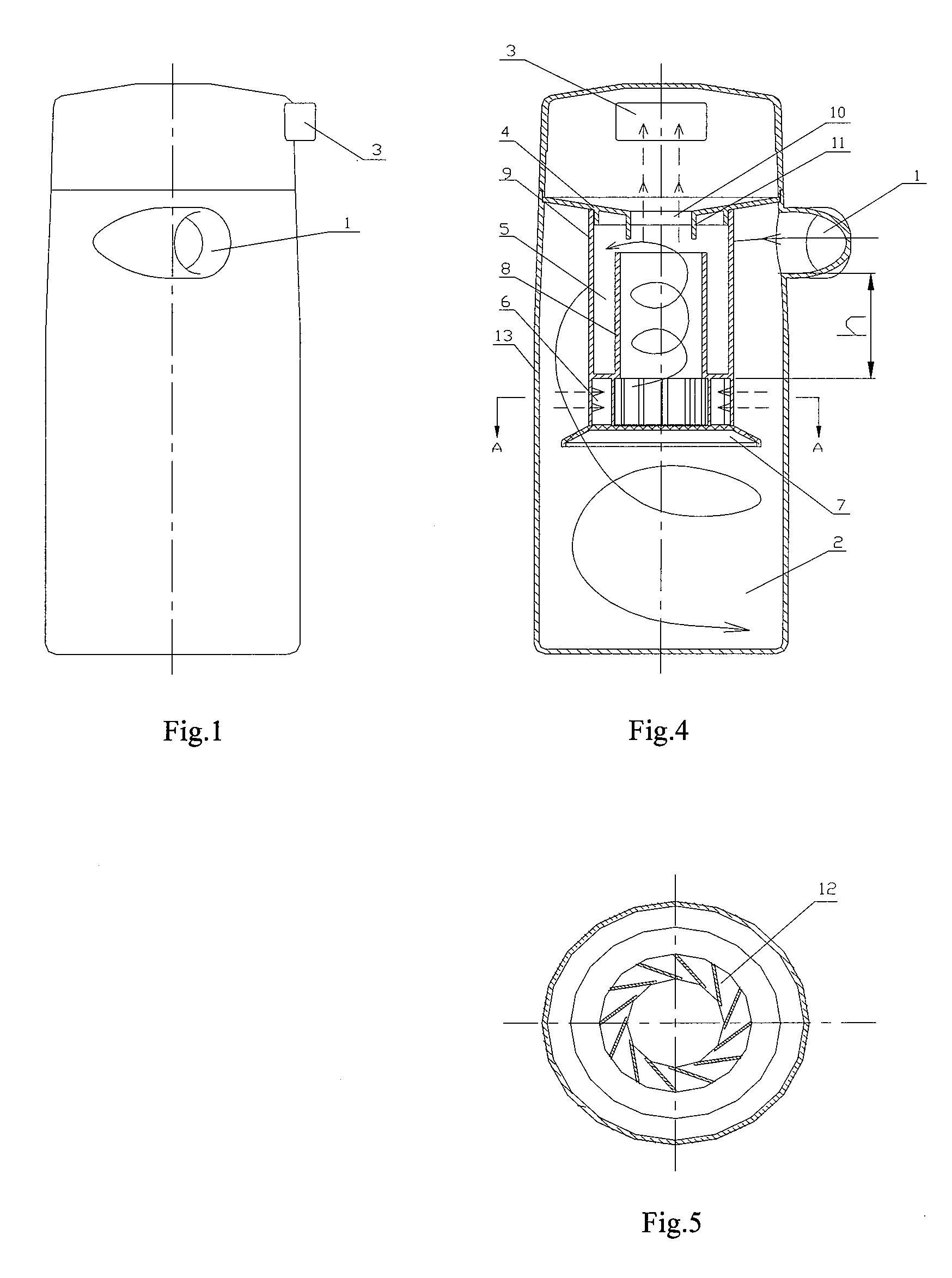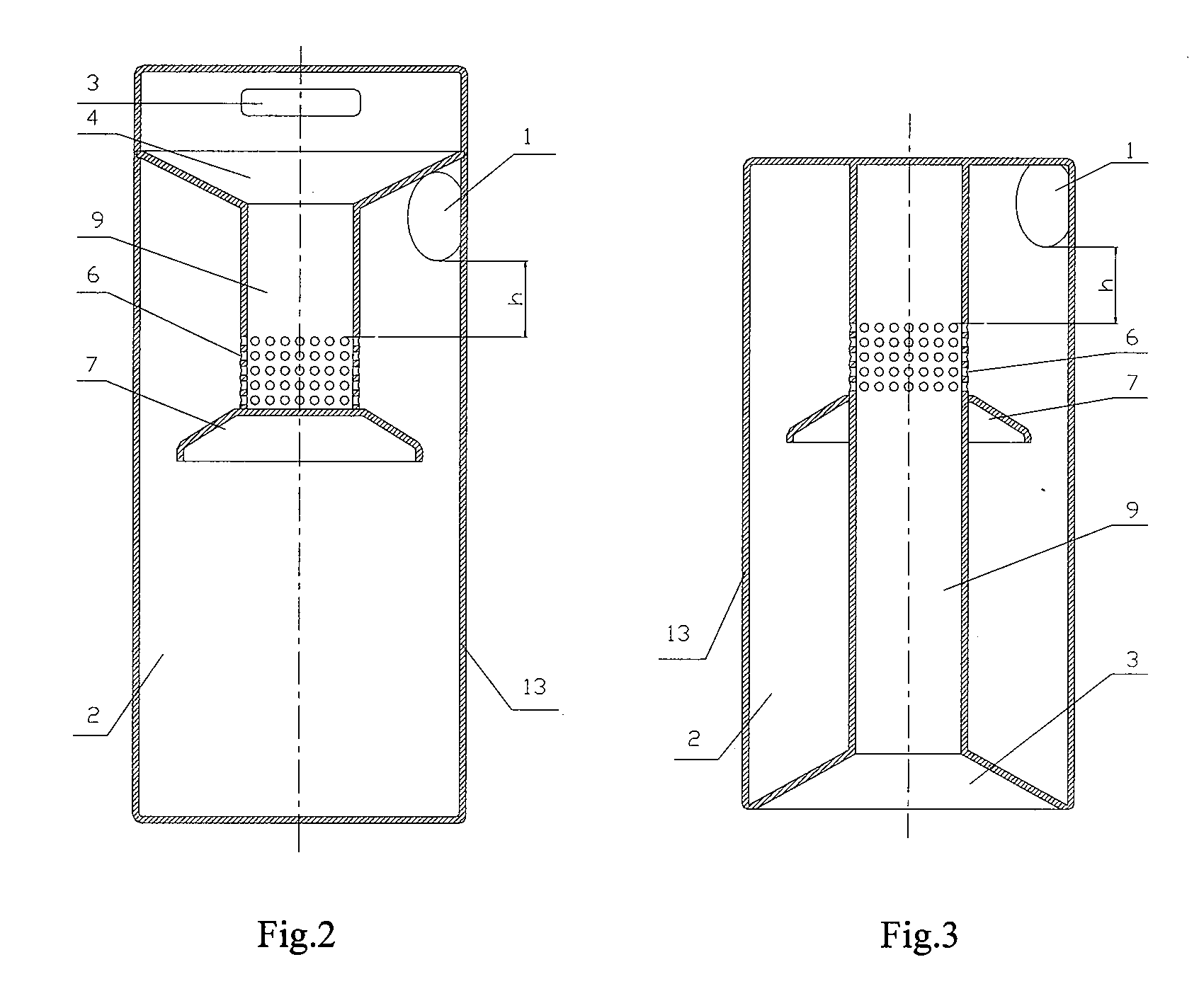Dust Collector Cup of Fall Centrifugal Separation Type
a centrifugal separation and dust collector technology, applied in the field of dust collector cups, can solve the problems of increased material cost, insufficient centrifugal force generated in dust collector cups, and insufficient volume, so as to reduce the volume of the product, reduce air pressure loss, and compact the effect of the structur
- Summary
- Abstract
- Description
- Claims
- Application Information
AI Technical Summary
Benefits of technology
Problems solved by technology
Method used
Image
Examples
example 1
[0035] Horizontal dust collector with a depth from the lower end of the dust cup inlet to the bottom of the cup is 130 mm. The fall height h between the horizontal positions of the lower end of the dust cup inlet and the upper end of the inlet of the separator is supposed to be 30 mm.
example 2
[0036] Vertical dust collector with a depth from the lower end of the dust cup inlet to the bottom of the cup is 270 mm. The fall height h between the horizontal positions of the lower end of the dust cup inlet and the upper end of the inlet of the separator is supposed to be 140 mm.
example 3
[0037] Vertical dust collector with a depth from the lower end of the dust cup inlet to the bottom of the cup is 185 mm. The fall height h between the horizontal positions of the lower end of the dust cup inlet and the upper end of the inlet of the separator is supposed to be 45 mm (a datum between 30-140 with very good effect is given).
PUM
| Property | Measurement | Unit |
|---|---|---|
| height | aaaaa | aaaaa |
| height | aaaaa | aaaaa |
| depth | aaaaa | aaaaa |
Abstract
Description
Claims
Application Information
 Login to View More
Login to View More - R&D
- Intellectual Property
- Life Sciences
- Materials
- Tech Scout
- Unparalleled Data Quality
- Higher Quality Content
- 60% Fewer Hallucinations
Browse by: Latest US Patents, China's latest patents, Technical Efficacy Thesaurus, Application Domain, Technology Topic, Popular Technical Reports.
© 2025 PatSnap. All rights reserved.Legal|Privacy policy|Modern Slavery Act Transparency Statement|Sitemap|About US| Contact US: help@patsnap.com



